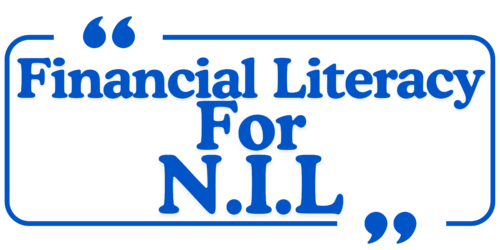As student-athletes embrace the opportunities presented by Name, Image, and Likeness (NIL) deals, many find themselves in a position where they can support family and friends financially. However, while the desire to help loved ones is commendable, it’s essential for student-athletes to do so thoughtfully. Balancing the need to support family and friends with their financial independence is crucial. Here are some of the best ways student-athletes can assist their loved ones without compromising their own financial stability.
1. Educate on Financial Literacy
One of the most impactful ways to help family and friends is by sharing knowledge about financial literacy. Student-athletes can:
- Host Workshops: Organizing informal workshops or discussions can empower family and friends with essential financial skills such as budgeting, saving, and managing debt.
- Share Resources: Recommending books, websites, or online courses can provide valuable insights into personal finance, enabling loved ones to make informed decisions.
2. Set a Budget for Assistance
If student-athletes are committed to providing financial help, setting a budget for this assistance is essential. This approach ensures that:
- Financial Stability is Maintained: By allocating a specific amount for helping others, student-athletes can avoid overspending and maintain their financial health.
- Clear Expectations are Set: Establishing a budget helps manage expectations from family and friends about what support can be provided.
3. Encourage Independence
Rather than offering direct financial assistance, student-athletes can encourage family and friends to pursue their own paths to financial stability:
- Suggest Job Opportunities: Helping friends or family members find job opportunities or internships can provide them with the income they need without relying on student-athletes.
- Promote Self-Sufficiency: Encouraging loved ones to learn skills or seek education that can enhance their employability fosters independence and confidence.
4. Provide Emotional Support
Sometimes, the most valuable support is emotional rather than financial. Student-athletes can:
- Listen and Offer Guidance: Being there for family and friends during tough times can help them navigate challenges without financial intervention.
- Share Personal Experiences: Discussing their own financial journey can inspire and motivate loved ones to take charge of their finances.
5. Offer Practical Help
Student-athletes can offer practical assistance that doesn’t involve direct financial support:
- Help with Budgeting: Assisting loved ones in creating a budget can empower them to manage their finances more effectively.
- Connect Them with Resources: Sharing information about local resources, such as food banks, housing assistance programs, or financial counseling services, can help loved ones in need without directly providing funds.
6. Limit Financial Assistance
If student-athletes decide to offer financial support, it’s crucial to set boundaries:
- Specify the Amount: Clearly stating how much they can contribute helps prevent misunderstandings and potential strain on relationships.
- Establish Terms: If loans are involved, outlining terms for repayment can clarify expectations and maintain a healthy relationship.
7. Lead by Example
Demonstrating good financial habits can serve as an inspiration for family and friends:
- Share Success Stories: Discussing personal financial achievements can motivate loved ones to pursue their goals and improve their financial literacy.
- Practice What You Preach: By managing their own finances responsibly, student-athletes can set an example that encourages their loved ones to do the same.
8. Communicate Openly
Transparency is key when navigating financial support:
- Discuss Financial Limitations: Openly talking about financial goals and limitations helps family and friends understand the athlete’s perspective.
- Reassure Loved Ones: Communicating that the decision to limit financial assistance doesn’t diminish their care can help maintain relationships.
Conclusion
Student-athletes have a unique opportunity to support their family and friends as they enter the world of NIL deals. However, it’s essential to strike a balance between helping loved ones and ensuring their financial stability. By focusing on education, encouraging independence, and providing emotional support, student-athletes can make a positive impact without compromising their own financial health. Ultimately, leading by example and fostering open communication can strengthen relationships while promoting financial literacy and responsibility within their communities.
Pat Brown, MBA
Financial Advisor and Former D1 Football Player
